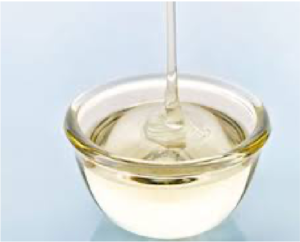What is Tapioca Syrup?
Tapioca syrup comes from the cassava or manioc root – commonly grown in Africa, South America and Asia. To make the syrup, workers harvest the cassava root from the ground, pulverize it into starch and then put the starch either through hydrolysis, which is a chemical decomposition process where a compound is split into other compounds by reacting with water, or the starches are incorporated with enzymes to further break down the starch into a tapioca syrup. In its final form, tapioca syrup is a translucent, viscous sweetener that can be used as a healthy and natural alternative to other sugars in cooking, baking, and beverage production.
Why Choose Tapioca Syrup?
In the U.S., most of the corn produced for corn syrup is genetically modified, which many of today’s consumers try to avoid in their products. Instead, they would prefer non-GMO tapioca syrup to help sweeten and improve the functionality of their foods and beverages. Fortunately, tapioca syrup can be a 1:1 replacement to corn syrup matching the percentage of solids level plus carbohydrate profile and DE so using tapioca syrup requires little to no reformulation.
Because tapioca syrups are colorless and neutral-flavored, they are very flexible to use in a variety of products — from cookies and ice cream to beverages and more. Tapioca syrups are available in a range of sugar profiles, from DE 27 to 95. Lower DE tapioca syrups are typically more viscous and less sweet, ideal for chewy granola bars, confections, or moisture retention in baked goods.; higher DE syrups are less viscous but sweeter, used in beverages, sauces, and binding syrups for snack bars. Depending on the desired outcome, many manufacturers combine multiple DEs to develop the exact balance of sweetness and texture for a specific product.
The main advantage to tapioca syrups is their lower protein content compared to glucose, grain-based syrups – a factor that positively affects shelf life. Tapioca syrup is also superior for film-forming and low-tack coatings, which helps granola bars and confections from sticking to the packaging. Other applications for tapioca syrup include ice cream, cereals, fruit preps, non-dairy creamers, sports nutrition and more.

Tapioca Syrup as a Healthy Alternative to Sugar
Compared to sugar, tapioca syrup has a reduced carbohydrate content. One-quarter cup of tapioca contains 168 calories, where the same amount of sugar contains about 194 calories. Sweetener Products offers clean-label tapioca syrup that is gluten-free and non-GMO. Its crisp, sweet taste can also be a healthier alternative to sucrose, honey, molasses, maple syrup, and corn syrup. As a naturally derived sweetener, tapioca syrup differs from table sugar in its composition and how the body metabolizes it. Unlike sucrose, which is a simple sugar, tapioca syrup consists of complex carbohydrates that break down gradually, providing a slower release of energy.
Additionally, tapioca syrup is odor- and flavor-free which makes it ideal to use as a binding agent in processed meats to keep them fresh. Low in sodium and a good source of calcium and iron, tapioca syrup can be a good option for manufacturers looking for a healthy sugar alternative.
Popularity of Tapioca Among Food Producers
From popular beverage products like Starbucks’ Refreshers to gluten free pizzas, the use of tapioca syrup by food and beverage producers has grown over the last few years. Not only is tapioca syrup a healthy, natural, and allergen-free alternative to other sweeteners, it has also been cost effective for those in the bulk ingredients industry. But demand for tapioca syrup has also faced challenges like supply chain disruptions, drought, and the impacts of Covid-19. Although supply chains have improved in 2022 as many shipping industries recover from the effects of the pandemic, producers should still be prepared to look at alternatives.
Sweetener Products Co. has been in the bulk ingredients industry for more than a hundred years. We have in depth knowledge about the benefits and uses of tapioca syrup and have been reliable bulk tapioca syrup suppliers to our loyal customers. We are also happy to be your partners in facing the challenges of today’s food production but helping you find alternatives that won’t compromise on your product’s quality. Contact us today to find out more about using tapioca syrup in your products or ask our ingredients experts for advice on switching to another natural sweetener!
Frequently Asked Questions:
How does tapioca syrup compare to honey and agave?
Tapioca syrup is a neutral-flavored sweetener with a clean, mild sweetness, making it more versatile than honey or agave, which have distinct flavors that can alter a product’s taste. It also has a lower fructose content than agave, reducing concerns over blood sugar spikes. Compared to honey, tapioca syrup is vegan and allergen-free, making it suitable for a wider range of dietary needs.
Is tapioca syrup a sustainable option?
Tapioca syrup is often considered a more sustainable alternative to corn-based sweeteners because cassava plants require fewer pesticides and less intensive farming practices. However, factors like regional growing conditions and supply chain disruptions can impact its sustainability, making it important for manufacturers to source from responsible suppliers.
How does tapioca syrup impact digestion?
Tapioca syrup is easy to digest compared to some other sweeteners, making it a good option for individuals with sensitive stomachs. Unlike sugar alcohols, which can cause bloating or gas, tapioca syrup is absorbed efficiently. However, since it has a high glycemic index, people with diabetes should monitor their intake carefully.
